
UE composers from Phasma Music

UE composers from Phasma Music

Akmal Parwez
*25 December 1948
Composer-vocalist Akmal Parwez was born into a musical and artistic family in Punjab, Pakistan. (His father was the renowned poet, music scholar and journalist, Afzal Parwez.) He studied electronics in Tokyo on a Japanese government scholarship, receiving B.E. and M.E. degrees. However, after a brief engineering career, and encouraged by his composition teachers Yasushi Akutagawa and Klaus Pringsheim, he felt compelled to devote his life to composing, singing and teaching music. He came to the U.S. to study voice with Joseph Klein, and later studied composition with Florence Jolley, Leo Kraft, Samuel Adler, Warren Benson and Joseph Schwantner. He received an M.A. in Composition from Queens College and a Ph.D. in Composition from the Eastman School of Music. Parwez is a bass-baritone soloist, choral conductor and voice teacher who often performs his own works.

Alexandros Georgiadis
*5 April 1976
(in Jannis Ioannidis' class). Later, he studied composition at the State University of Music in
Cologne/Germany - Hochschule für Musik und Tanz Köln
(composition class by York Höller) and visited the computer music seminars by Clarence
Barlow at the same University.
He is a freelance composer and performer. His works are been premiered in Greece and
abroad (Germany, The Netherlands, Italy etc.)
Milestones:
- Participation in Festivals for Electroacoustic music in 2008, 2012 and 2013 in Greece [Athens]
- Composer-in-Residence for Camerata Europaea [Athens 2015]
Hurdles: many!
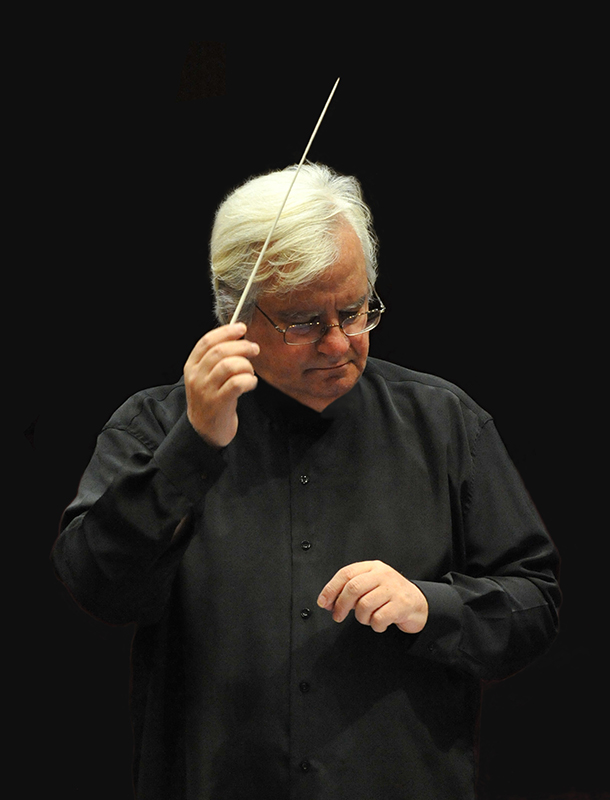
ALKIS BALTAS
• From 1983 to 1992 he was the Artistic Director of the Thessaloniki State Orchestra. • From 1994 to 1997 he was the Artistic Director of the Greek National Opera. • During the period 1997-1999 he was the Artistic Director of the Music Ensembles of the Greek Radio. • From 2004 to 2008 the Municipality of Corfu assigned him the artistic direction of the Symphony Orchestra of the Municipality of Corfu. • From 2011 to 2017 he was the Artistic Director of the Cyprus Symphony Orchestra. • Since May 2010 he has been the Conductor of the Symphony Orchestra of the Philharmonic Society of Corfu. • From 2001 to 2019 he was the Artistic Director of the Patmos Sacred Music Festival entitled "The Holy Revelation of Music". • Since 1990 he has been the Artistic Director of the "Music College" of Thessaloniki. • From 1992 to 2011 he taught orchestration and conducting at the Department of Musicology of the Aristotle University of Thessaloniki. Alkis Baltas is a member of the Greek Composers’ Union.
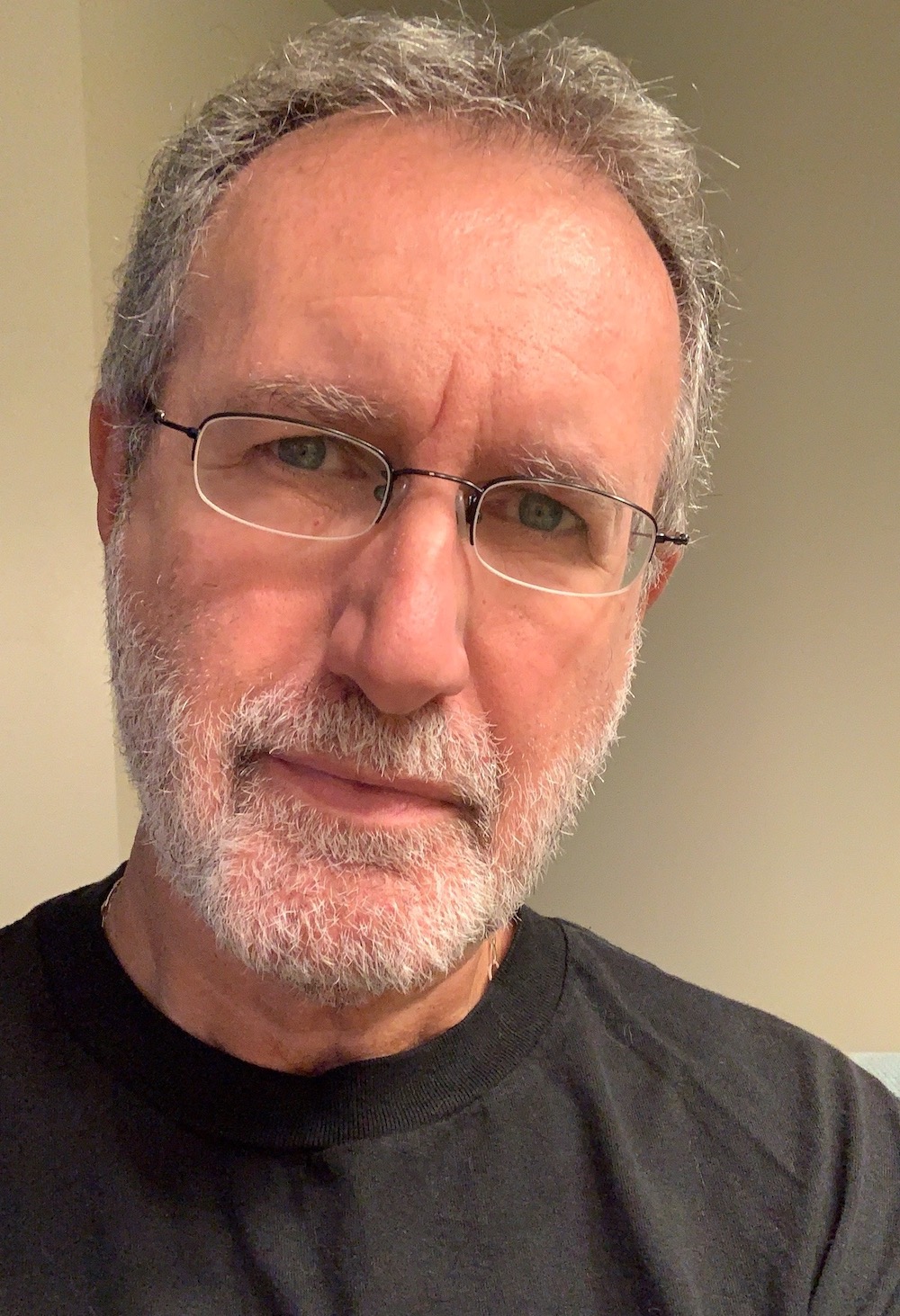
Aris Carastathis
*21 May 1957
Aris Carastathis is Professor of Theory /Composition and Chair of the Department of Music at Lakehead University, Thunder Bay Ontario, Canada. He is an Associate Composer and Voting Member of the Canadian Music Centre, and President of New Music North. He holds a Doctor of Musical Arts degree from Louisiana State University where he studied composition with Dinos Constantinides. A composer of over one hundred works, Carastathis has received commissions from the Canadian Music Centre, Music Canada 2000, Thunder Bay Symphony Orchestra, Norman Burgess Memorial Fund, Lakehead University Centre for Northern Studies, Louisiana Sinfonietta, Acadia Trio and LSU New Music Ensemble. Carastathis' music has been performed in Austria, Belgium, Canada, England, Germany, Greece, Italy, Kazakhstan, Poland, Serbia and USA. Many of his works are available through the Canadian Music Centre Distribution Centre and Universal Edition.
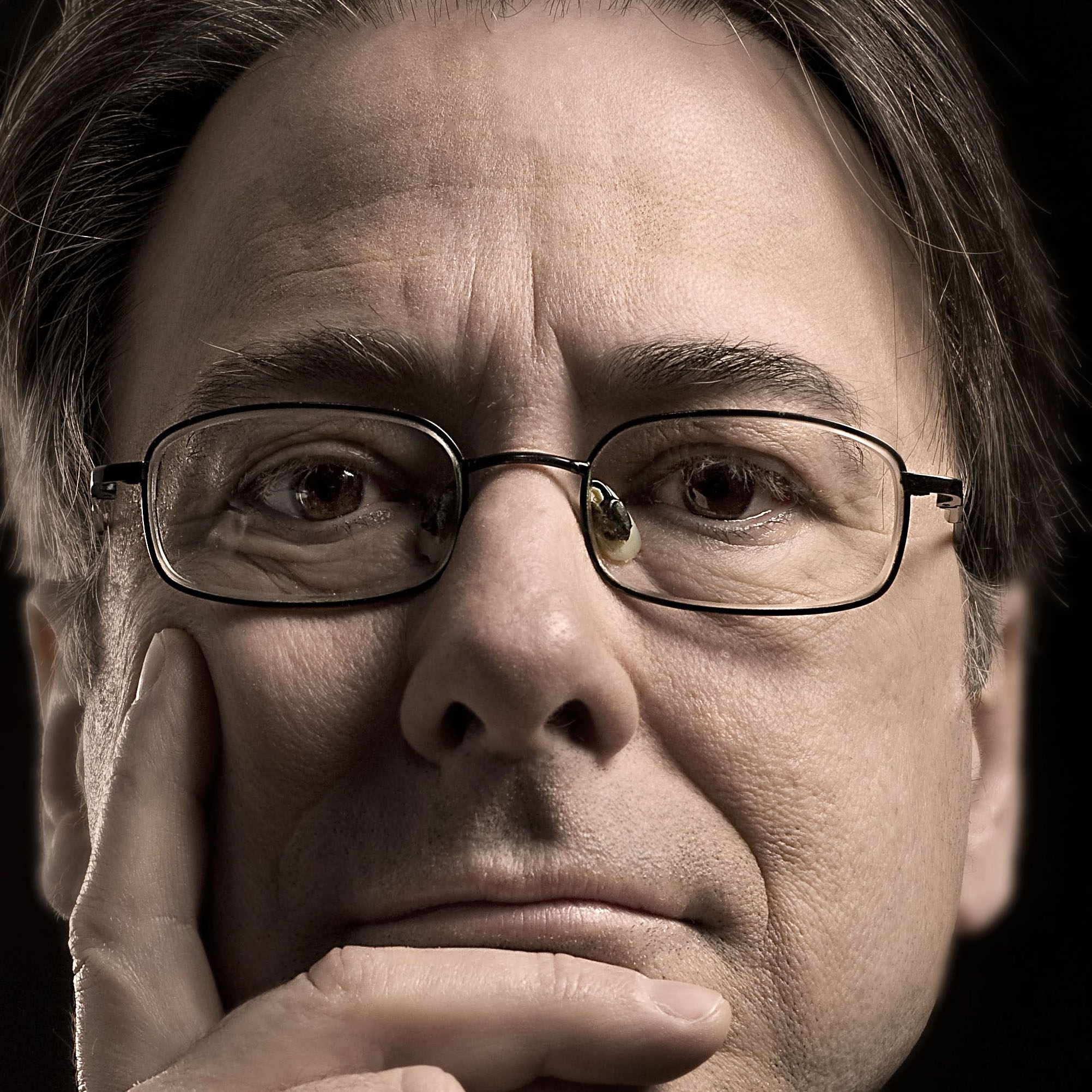
Charles Mason
*8 January 1955
He has been performed broadcast throughout the including “Performance Today” on NPR and RIAA in Italy. Opus 94 on 94.5 Instituto Mexicano de la Radio devoted two programs to Mason’s music, in 2022 was a featured composer on Tania León’s Composers Now IMPACT series. He has received many awards in recognition of his work including the the 2005 Rome Prize. And he has received commissions from a number of top musicians such as Maestro Gerard Schwarz, The Ritz Chamber Ensemble, The Percussion Collective, Quince ensemble, The Empire City Men’s Chorus, the American Composers Orchestra, Alabama Symphony Orchestra, the Gregg Smith Singers, the Dale Warland Singers, the Corona Guitar Kvartet and the Fairbanks Symphony Orch.

Chin Ting Chan
*9 May 1986
The music of composer Patrick Chin Ting CHAN (b. 1986) is motivated by a search for an expression of the free minds that cannot be described, but imagined. It stems from a distrust of the human senses. It is often inspired by abstract patterns he discovers in daily objects, as well as imaginary landscapes and human interactions, but it depicts the subjects from unexpected perspectives, allowing listeners to reimagine their surroundings.
Chan grew up in Hong Kong and came to the United States in 2003. He has been featured in events including Ars Electronica, IRCAM's ManiFeste, ISCM World Music Days, UNESCO International Rostrum of Composers, and Venice Art Biennale, among others. He has held residencies and commissions from organizations such as Charlotte Street Foundation, Hong Kong Composers' Guild, Music Teachers National Association, and Virginia Center for the Creative Arts. He has worked with ensembles such as City Chamber Orchestra of Hong Kong, Ensemble intercontemporain (France), Ensemble Metamorphosis (Serbia), eighth blackbird (U.S.), Hong Kong New Music Ensemble, Mivos Quartet (U.S.), and New York New Music Ensemble, with performances in venues such as Staatstheater Darmstadt, Seoul Arts Center, DiMenna Center for Classical Music, National Sawdust, and in more than thirty countries.
Awards and other recognition include those from the American Prize, ASCAP, Association for the Promotion of New Music, Foundation Destellos, The EAR Classical, Foundation for Modern Music, Interdisciplinary Festival for Music and Sound Art – Shut Up and Listen!, Lin Yao Ji Music Foundation of China, loadbang, MidAmerican Center for Contemporary Music, newEar, New-Music Consortium, Semaine international de la musique électroacoustique, Soli fan tutti Composition Prize, Utah Arts Festival, WOCMAT International Phil Winsor Computer Music Competition, and others. His recordings appear in albums with ABLAZE, Darling, Empirica, Navona, New Focus, Phasma-Music, Ravello, and RMN Classical labels. His scores are published through BabelScores and Universal Edition.
Chan is also an active performer and improviser of accordion, guqin, as well as live electronics via a Eurorack modular system and other custom interfaces on the computer. He is currently an Associate Professor of Music Composition at Ball State University. He holds degrees from the University of Missouri–Kansas City (D.M.A.), Bowling Green State University (M.M.), and San José State University (B.M.). His primary teachers include Chen Yi, Zhou Long, James Mobberley, Paul Rudy, Marilyn Shrude, and Brian Belet.
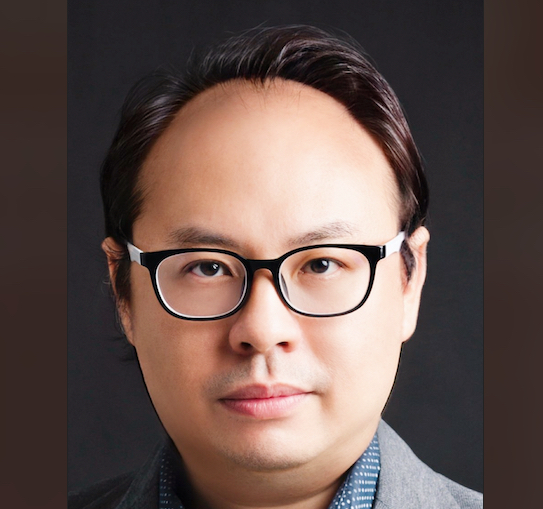
Chris Hung
*13 April 1977
The music of Hong Kong composer Dr Chris Hung has first gained international recognition in 2010, with his work “Infinite Soundscape” premiered by International Contemporary Ensemble (USA) at the Darmstadt Summer Course in Germany.
His diverse oeuvre includes an array of about 70 works from instrumental solo to orchestral music, as well as audio-visual works and choral music.
Hung’s scores are published by Universal Edition (Austria), BabelScores (France) and Trübcher Music Editions (UK).
Over the past fifteen years, Dr Hung’s works have been performed and broadcasted throughout Europe, as well as USA and Asian countries in various leading festivals, such as Beijing Modern Music Festival (China), ISCM World Music Days (Slovenia), Sibelius 150th Anniversary Celebration (Finland), Music Biennale Zagreb (Croatia) etc.
He was composer-fellows in CoMA New Music Residency (UK), Singapore Chinese Orchestra Workshop and composer-in-residence of Nexus Ensemble.
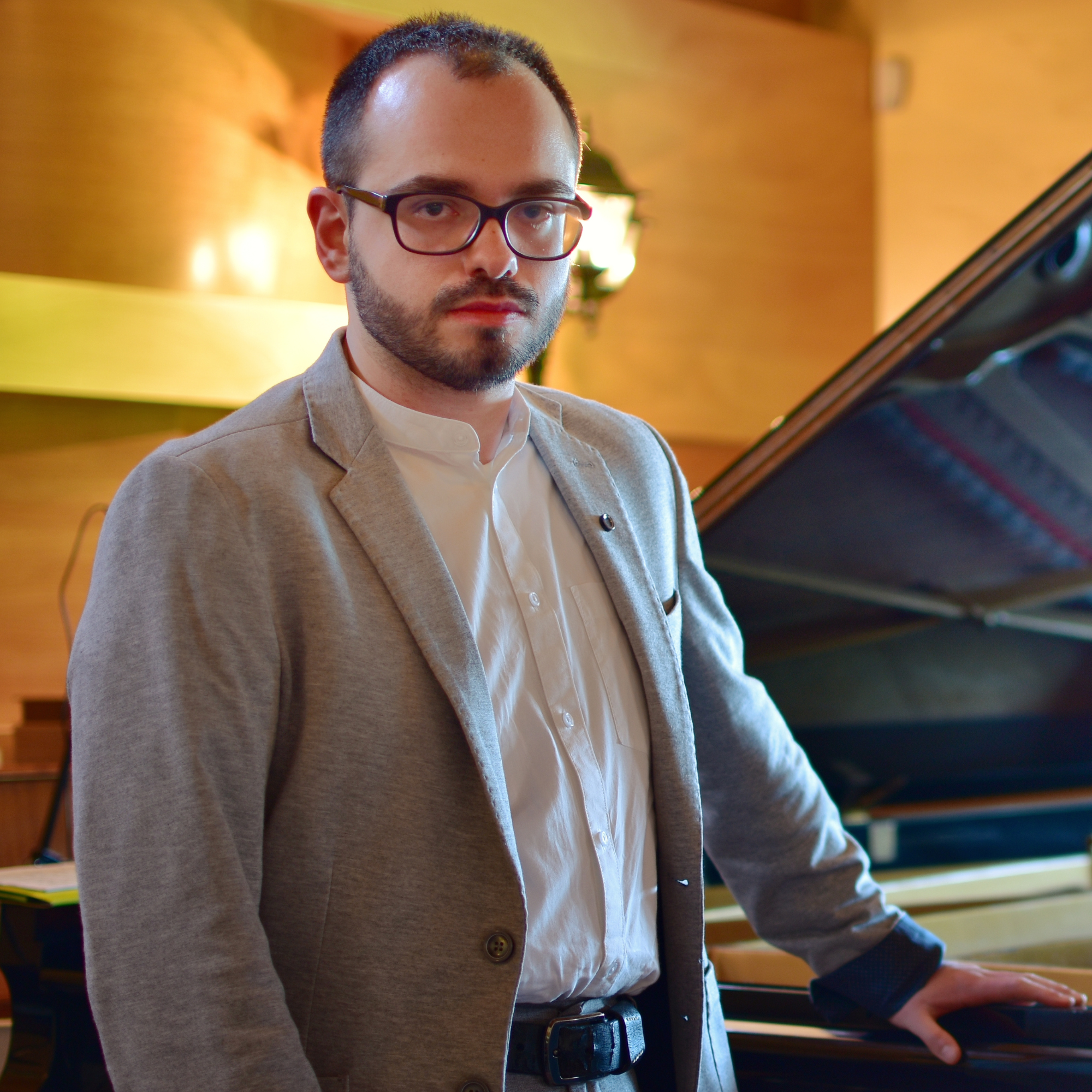
Daniele Ciminiello
*6 June 1991
Composer and pianist Daniele Ciminiello was born in Lecce, Italy, in 1991. He ran into music by chance when he was 11, and one year later he started to study piano with Roberta Epifani and composition with Fabrizio Piccinno. He continued his studies at the “Tito Schipa” Conservatory in Lecce, where he graduated in piano in 2010 and in composition in 2014 with Giuseppe Gigante.
In 2011, he was awarded the Licentiate of Royal Schools of Music in Music Performance – Piano by The Associated Board of Royal Schools of Music – London.
In 2015, he began his post-graduate studies at the National Academy of Santa Cecilia in Rome, where he studied with Ivan Fedele until 2018. He also attended masterclasses with Federico Gardella, Stefano Gervasoni, and Salvatore Sciarrino.
In 2019, he obtained a Master of Music in Film Scoring at E-Campus University in Lecce, where he studied with Francesco De Donatis, who appointed him assistant professor until 2019.
He was professor of music theory and piano at Harmonium High School of Music in Lecce from 2015 until June 2019.
Then, in 2020, he moved to Saudi Arabia, where he is currently a piano, composition, and music theory teacher at the Saudi Music Hub in Riyadh.
His works achieved important recognitions all over the world.
In February 2025 he won the Symphony San Sebastián Concours, organized by County Hall Arts, London.
His Fantasia N. 2 for Symphony Orchestra has been premiered in the S. Lyudkevych Concert Hall on February 2, 2024, by the Lviv National Philharmonic Orchestra, conducted by Volodymyr Syvokhip.
His Fantasia N. 1 for Symphony Orchestra has been premiered on June 1, 2021, by the National Symphony Orchestra "Sergei Lunchevici" of the Republic of Moldova, conducted by Mihail Aghafita in the XXX Edition of the "New Music Days" International Festival, and later included in the album Chisinau 2, released by Phasma Music in 2022.
Since 2019, he has had long term collaboration with the famous Polish flutist Iwona Glinka, who performed and recorded several of his works with the label Phasma Music: Click for solo flute, album Two Minutes, Phasma Music, 2019, winner of “Global Music Award - Outstanding Achievement - Silver Medal” in the two categories contemporary classical and album; Gymnopédie for flute and string trio, album Teth, Phasma Music, 2021; A un altro me stesso for solo flute, album Yodh, Phasma Music, 2021; Lament for Theodore for solo flute, album Lament for Theodore Antoniou Vol. 1, Phasma Music, 2021, winner of Akdemia Music Awards - Music Award of Excellence.
His work Le Forme del Fuoco has been premiered by the Duo Carrozzo – Fasiello at Usmar Ismail Hall in Jakarta on September 25th 2019 and later included in the album In Focus 6, released in October 2021 by RMN Classical, a label based in London.
His Trio for violin, violoncello and piano was premiered at Parco della Musica in Roma in 2017 and was later included in the album Contemporary Chamber Music released by RMN Classical in 2019.
On May 12, 2021, he released his first solo album for piano, Message in a Bottle, which includes 10 original compositions.
Since 2023, the music scores of hi s compositions have been published by Universal Edition.
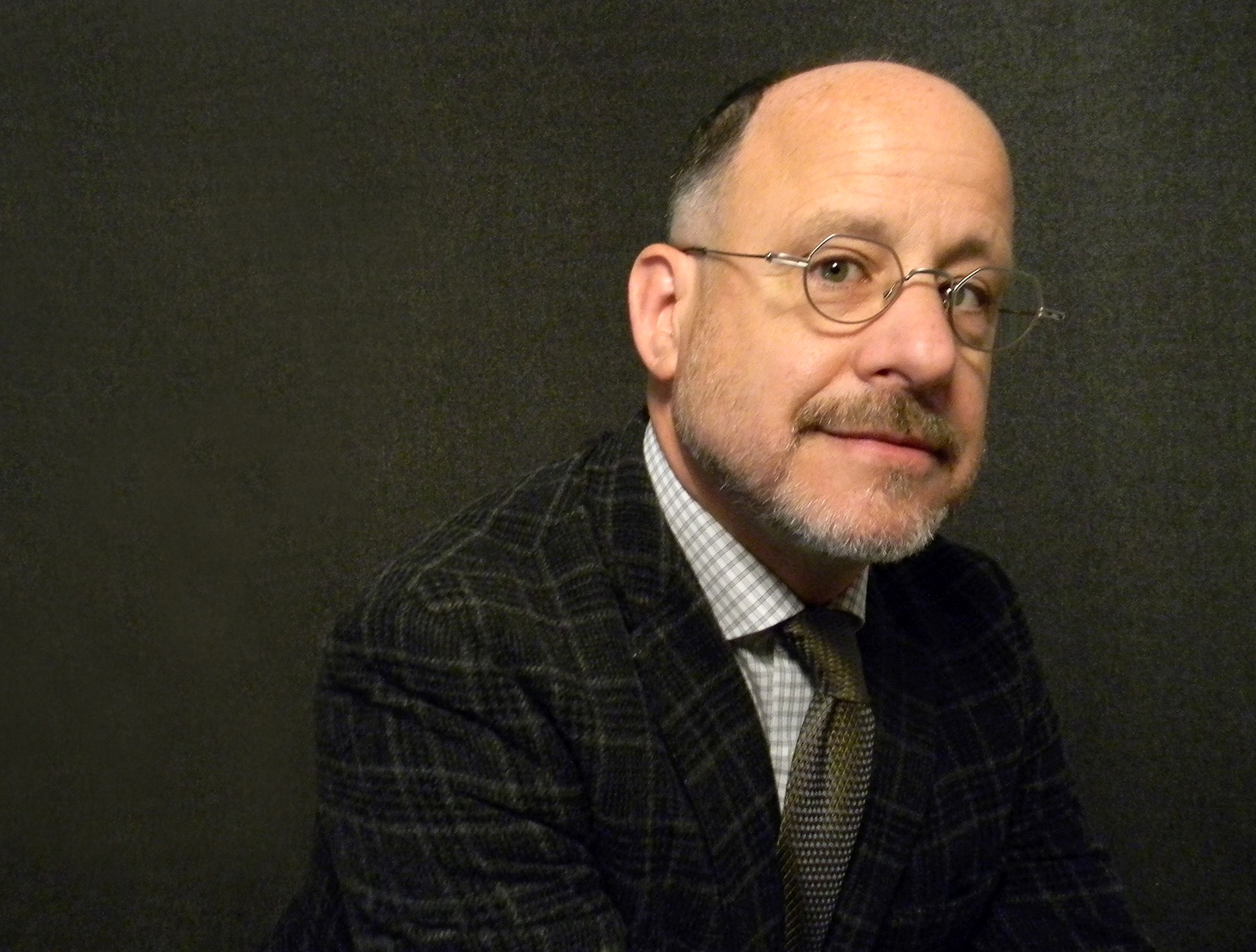
David Lipten
*12 May 1961
David Lipten…is a composer with a strong sense of direction, a fluid syntax and an inventive linear-abstract melodic gift. Gapplegate Classical-Modern Music , Feb. 2015. Axiom Brass, NYNME, and Donald Nally, cond., etc., have premiered his compositions. Recent premieres/performances include his “Waits & Measures” at Adelphi University, “Double Down” at Carnegie Hall, and “Double Clutch” in France. David’s “Tongue & Groove” for oboe/strings received 1st prize by Elevate Ensemble. His string quartet “Ictus” won 1st prize at the Portland Chamber Music Festival. The chorus “Volti” performed and recorded “Time’s Dream” in 2012 (American Prize 2013 finalist) and Harold Rosenbaum’s New York Virtuoso Singers recorded “A Widow’s Song” and “How To” in 2016 (American Prize 2018 2nd place). Other awards/commissions include those from the Fromm Foundation/Harvard, and the Jeffrey Jacobs Award. He has attended Yaddo, MacDowell, Aspen, etc. David holds a Ph.D. from Duke University.

Frederic Glesser
*4 August 1956
Frederic Glesser grew up near Toledo, Ohio, where his early musical influences were rock, jazz, and music of the Baroque era. He studied jazz with Gene Parker and had flute studies with Kay Hartsfeld. He was later educated at Kent State University (BMus) in Ohio where he studied composition with James Waters and David Stewart, and studied flute with Raymond DeMattia and Maurice Sharp (former principal flutist, Cleveland Orchestra). His graduate studies where undertaken at the University of Miami (MMus) in Florida where he studied composition with Dennis Kam. Glesser’s music has been presented at concert venues throughout the United States and Europe, Canada, Argentina, and Brazil, including the Weill Recital Hall and the Tenri Cultural Center; conferences including those for the Int'l Clarinet Assoc and the Nat'l Flute Assoc; and festivals including Kent-Blossom (USA), JazzWeek (Netherlands), New Music North (Canada), Modern American Composers (Ukraine, Armenia), Subtropics (USA), and Frontwave (USA). His compositions include works for small to medium ensemble, solo instrumental, and orchestra.
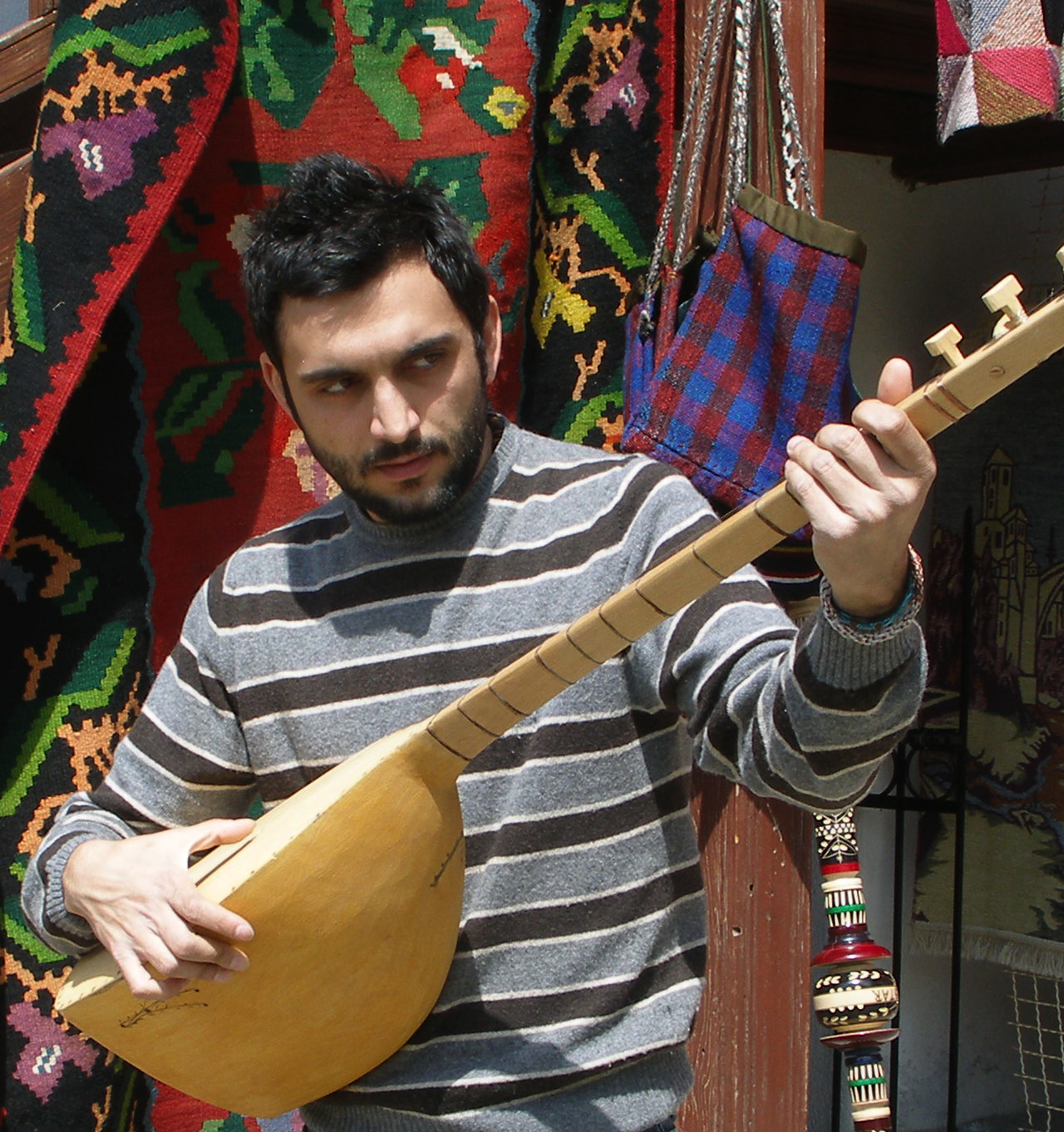
Giorgos Papamitrou
*29 April 1979
Giorgos Papamitrou has studied guitar and composition, and he has attended classes in electronic music and music for media. He is working as a guitar and computer teacher.
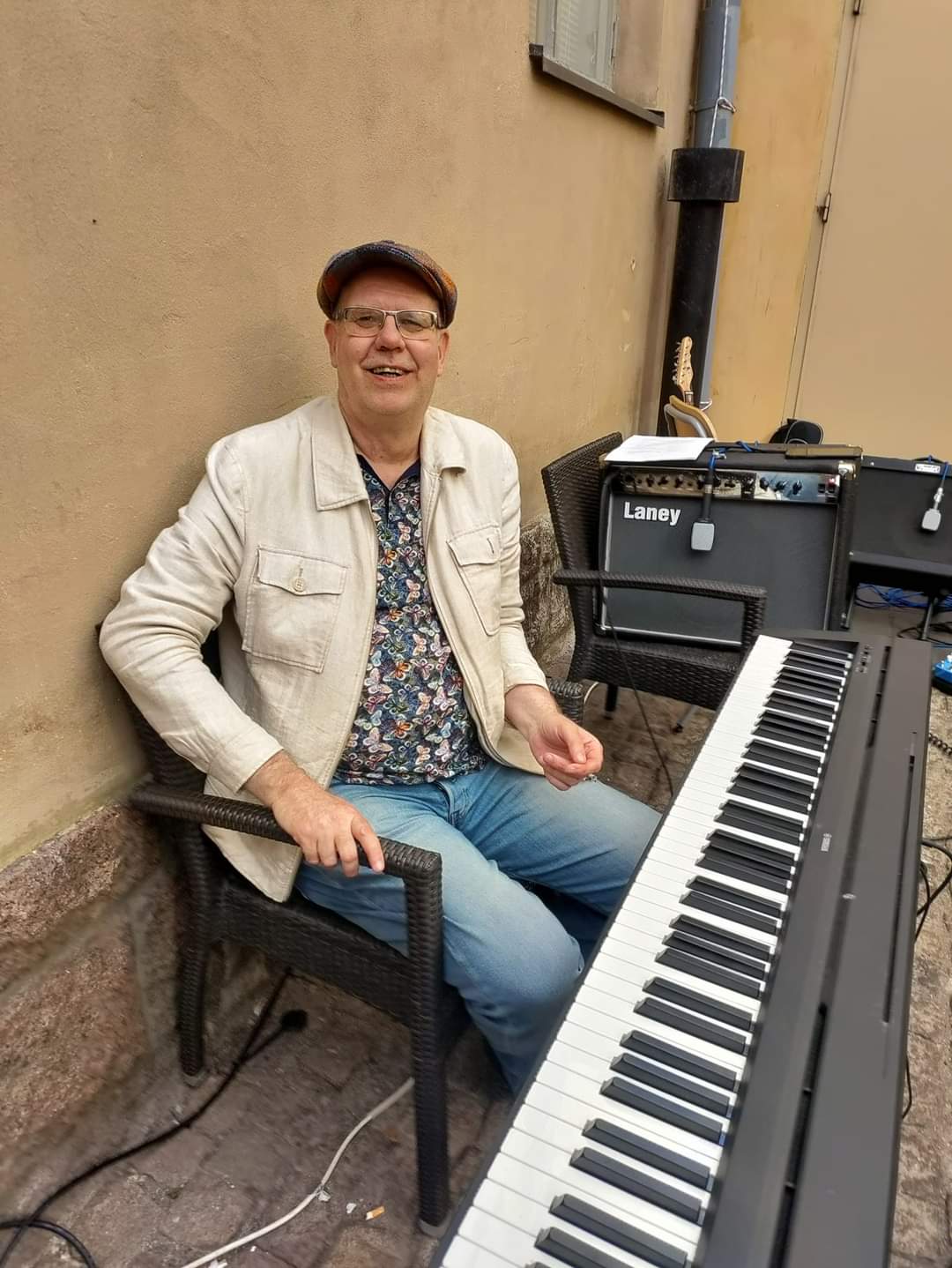
Jarmo Herkman
*28 August 1964
Jarmo Herkman was born in a small city near Helsinki, the capital of Finland, in 1964. He studied musicology, literature, aesthetics and psychology at the University of Helsinki, piano playing and piano pedagogy at the conservatories in Helsinki and in Turku and music theory and composing with leading teachers at the Sibelius Academy. Besides music, he has worked as a psychologist and a psychotherapist and published poems. He has taught piano playing, music theory and history of music. He is a versatile pianist and performs both classical and other genres as a solo player as well as a chamber musician. He has made numerous arrangements in many genres for concert performances. As a composer, he likes to compose also in other genres in addition to classical music. His compositions have been performed in Finland, his native country, and abroad.
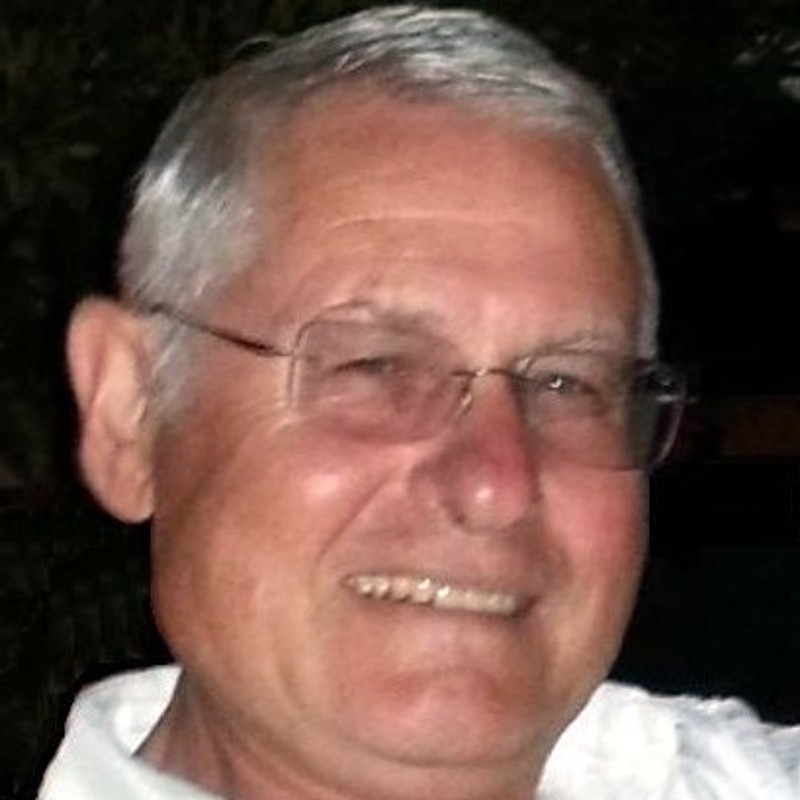
Jean-Pierre Vial
*24 February 1946
Jean-Pierre Vial is a French, self-made composer, born near Paris, France, in 1946.
He used to play the piano and the organ, and to compose several "juvenile" pieces for both instruments.
With a scientific background, however, he undertook to work for the software industry.
Over the last decade, after a career as a software designer, he has renewed his compositional activities and composed various pieces for solo instruments, small ensembles, or orchestras who posted a number of his worldwide premieres on YouTube.
He received composition awards for such works as his Præludium & fuga MMXVIII for organ, or his chorale Vor Johann Sebastian, tret ich hiermit for string orchestra.
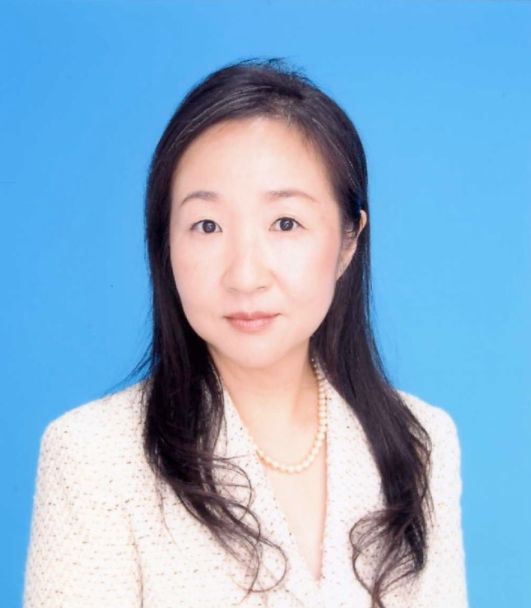
Kaori Nakano
*14 May 1960
Kaori Nakano is a Japan-based composer, arranger, pianist, jazz pianist and educator.
She has taught popular piano, jazz piano, and adult piano courses at Yamaha Music School for 30 years.
She has taught performance, improvisation, and music theory to beginners, piano teachers, and those wishing to pass their piano teaching qualifications.
From the United States, she has released works such as jazz ensembles in the field of music education.
In 2021 and 2022, her jazz ensemble works were selected, introduced and performed at the Jazz New Music Reading Session of The Midwest Clinic, the largest music education conference in the United States.
In Japan, she has published a large number of musical scores, such as arranging song teaching materials for nursery teachers, kindergartens, and elementary schools, and arranging musical scores for teacher employment exam practical tasks.
She started taking piano lessons at the Yamaha music school in Japan at the age of three, and took private piano lessons during her elementary school days in Bangkok, Thailand.
Since she was a university student, she had experience in performance activities, so she started teaching piano and electronic organ performance and arranging as a lecturer for musician training courses such as wedding halls.
Interested in Eastern philosophy, she majored in Indian Buddhism at the 370-year-old Ryukoku University in Kyoto, where she earned a master's degree and later doctoral credits.
Her research theme was the Vijñapti-mātra (tā) of the Yugagyo-only school, one of the two major philosophical currents of Mahayana Buddhism.
Music is a means of expression, and she thought it was important to find the content itself to express. Instead of majoring in music, at her university she wanted to study Eastern thought systematically, partly because she is Japanese and partly because she spent her childhood in Asia.
In addition, she has cleared DTM and Midi certification exams, and has produced music for gymnastics floor exercise, Tai Chi, puppet theater, etc., which have been sold as DVDs and broadcast.
While teaching as a Yamaha instructor, she felt a strong need to study jazz by having a jazz class. She then began studying jazz piano again and arranging jazz ensembles, which led her to seriously compose music.
She learned classical piano from Mrs. Takako Kanomi.
She learned jazz piano from Mr. Zensho Otsuka, and she learned jazz composition and arrangement from Mr. Katsuhiko Tanaka.
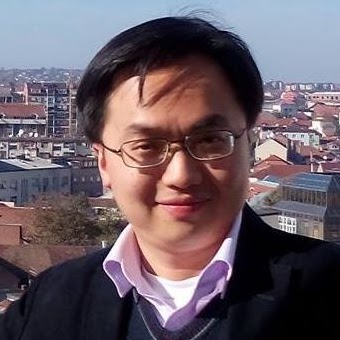
Man-Ching Donald Yu
*16 November 1980
Man-Ching Donald Yu (余文正) (b.1980), Hong Kong born composer and pianist. His recent music is refined by the interweaving of post-minimalist and post-modernist traits; subtle transformation of various musical parameters in different suspended times and spaces is one of the important underlying principles in his recent works. Fanfare Magazine hails his music as "forming an arresting and personal intermixing of tonal and atonal languages, with the musical colors and gestures of his native country infiltrating the mix." (2012)
As a prolific composer, his nearly two hundred compositions encompass a spectrum from instrumental and vocal works to chamber opera, choral works, and symphonies. Globally recognized, his works have been showcased in more than 20 countries with 50 cities throughout the North and South America, Europe, and Asia, gracing stages at prominent venues and events such as the Musikverein (Wien), 2022 Contrasts International Contemporary Music Festival, the International Review of Composers (Serbia), the EurAsia International Music Festival (Yekaternburg Russia), the International Festival of Modern Art: Two Days and Two Nights of New Music, the International Kiev Music Fest, the International Spring Orchestra Festival (Malta), the 2015 Expo Milano (Italy), and many others; Esteemd ensembles like Lviv National Philharmonic Symphony Orchestra, Gloria Chamber Choir, Lugansk Philharmonic, Chernivtsi Philharmonic, Uzhgorod Philharmonic with chorus, Opera Hong Kong Chorus with Hong Kong Chamber Orchestra, Icarus Ensemble (Italy), Orlando Contemporary Music Orchestra have performed and recorded his pieces. His scores are exclusively published by Donemus (Netherland) and Universal Edition (Wien), other publishers include Babelscores (France), Edizioni Sconfinarte (Italy), Da Vinci Edition (Japan), etc; most of his recordings are exclusively available at Donemus Records, and other labels include Phasma Music, Ablaze, Albany and Zimbel Records as well as Association New Music (Ukraine), etc. Besides his compositional outputs, his theory papers were presented at various international music theory conferences in Serbia, Poland, and UK as well as published in scholarly book and music journals. As an academic staff, he has taught music theory, musicology, and composition in tertiary universities in Hong Kong since 2007.
Yu received his early formal musical training at an early age and made his concerto debut at age 16, leading him to Baylor University to study piano performance with renowned pianist and artistic-in-residence Krassimira Jordan of the Russian piano school where he completed his Bachelor of Music. Afterwards in 2007, he studied composition with stipendium at the International Summer Academy Mozarteum Salzburg with a diploma in Austria, and later in 2010, he earned a Ph.D. in composition and music theory with the support of a full postgraduate research assistantship at Hong Kong Baptist University. He also holds FTCL in composition, LRSM in piano as well as Super Soloist Performance Zertifikat in piano from Wiener Musik Prüfungskommission. Since 2007 he has been the recipients of various awards and honors from different organizations including Sir Edward Youde Memorial Fellowship, "Muzyczne Orły" International Competition (Poland), Newly Published Music Competition (U.S.) and Classic Pure Vienna International Music Competition, Clouzine International Music Awards-Best Contemporary Classical Album, First Great Award of the 5th Vienna International Music Competition, etc. Notably, his orchestral piece "Unravelling" was awarded Gold Medal (Awards of Excellence) in two categories-Best Contemporary Classical and Composition of the 2022 Global Music Awards.
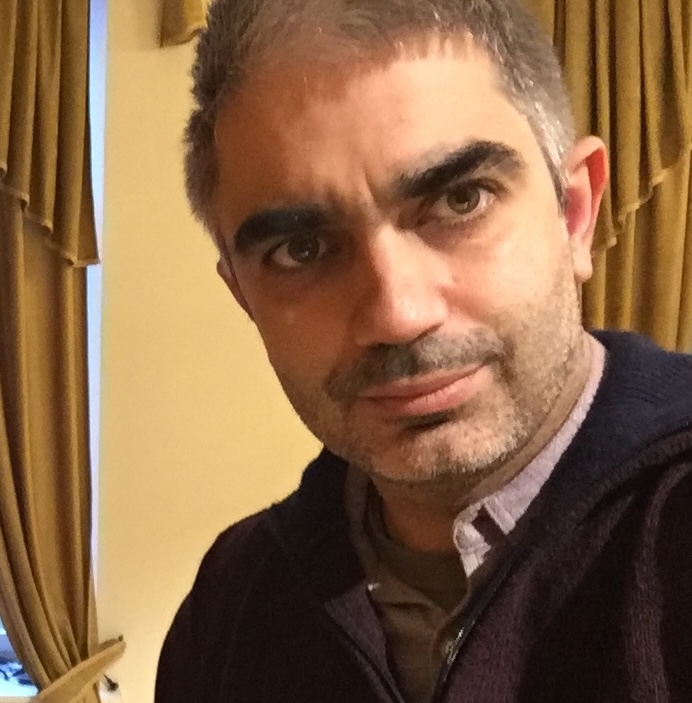
Manos Panayiotakis
*5 September 1982
Manos Panayiotakis (1982) is a Greek composer and musicologist (BA Musicology, National Kapodistrian University of Athens; MA, PhD Composition, University of York, funded by State Scholarship Foundation). He studied with composers T.Antoniou and T.Simaku, and with acclaimed flutist I.Glinka. He has collaborated with ensembles and orchestras in Europe and USA, such as ALEA III (Illustration, under G.Schüller, Boston University), Webern Symphony Orchestra (Echosymplokon, under S.Pironkoff, ISCM Vienna), and The Chimera Ensemble. He was a resident composer in Visby International Centre for Composers (Sweden 2016). He has taught at the Aristotle University of Thessaloniki and the Technical University of Crete, and has presented papers in international conferences (Sibelius Academy, Trinity College, Lithuanian Academy of Music & Theatre, European University Cyprus). The idioms of his works often reflect his cultural heritage. His works have been recorded by Sarton Records and Phasma Music.
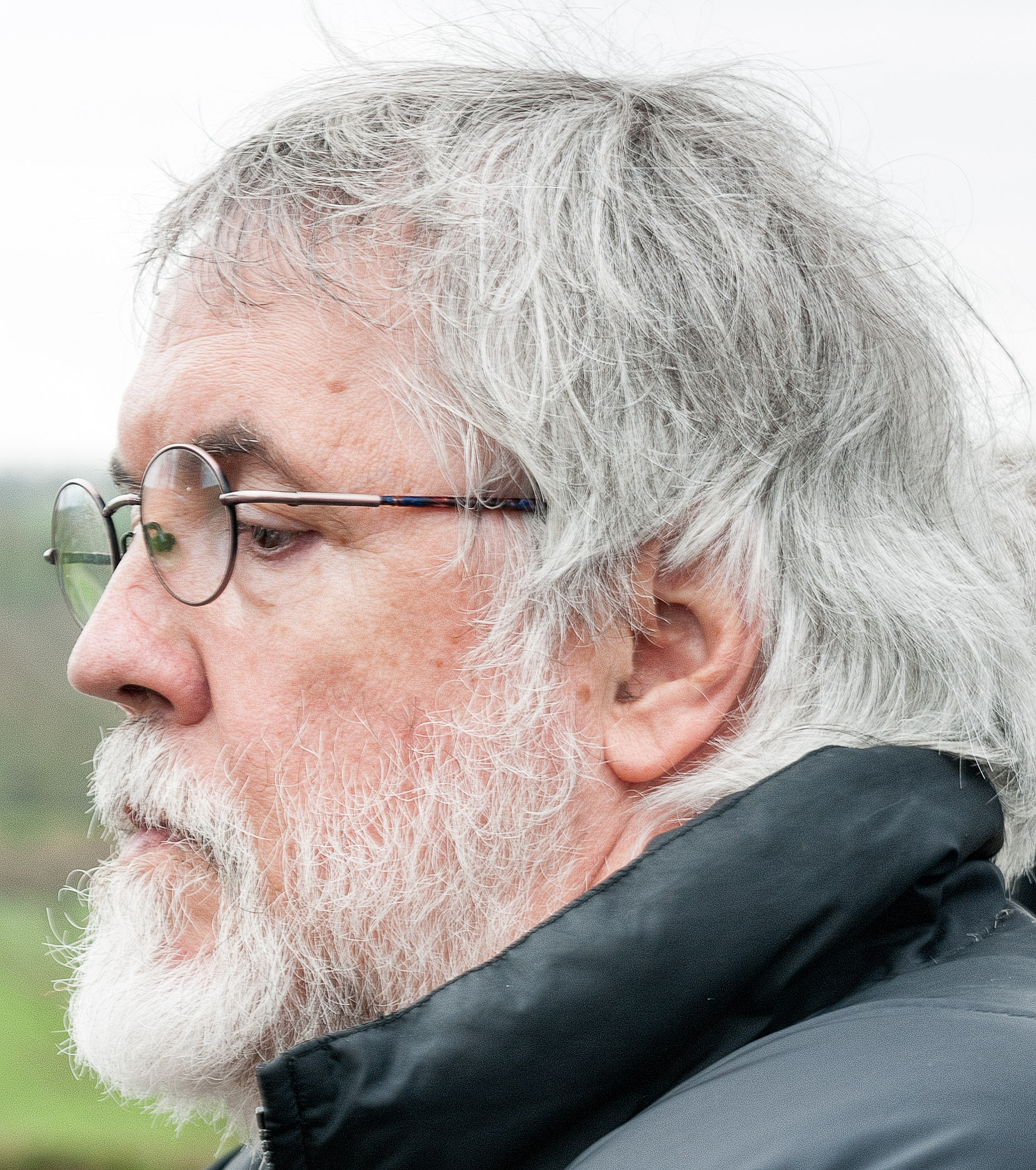
Michael Matthews
Michael Matthews studied composition with Larry Austin, Ben Glovinsky and Aurelio de la Vega before completing his Ph.D. in composition at North Texas State University in 1985. In 2012 Matthews retired from twenty-seven years of full-time teaching at the Marcel A. Desautels Faculty of Music, University of Manitoba; he is now Professor Emeritus there. Matthews is a Fellow of the Royal Society of Canada and currently lives and works in Berlin. He has been the recipient of numerous commissions and awards, including a Rockefeller Foundation residency at the Bellagio Center in Italy, the International Computer Music Prize, a scholarship to the Composition and Computer Music Seminar of the Bartók Festival in Szombathely, Hungary a Major Arts Grant in music from the Manitoba Arts Council. Matthews is a conductor and a founder and artistic director of the GroundSwell new music series. From 2002-2004 he was Composer-in-Residence with the Saskatoon Symphony Orchestra.
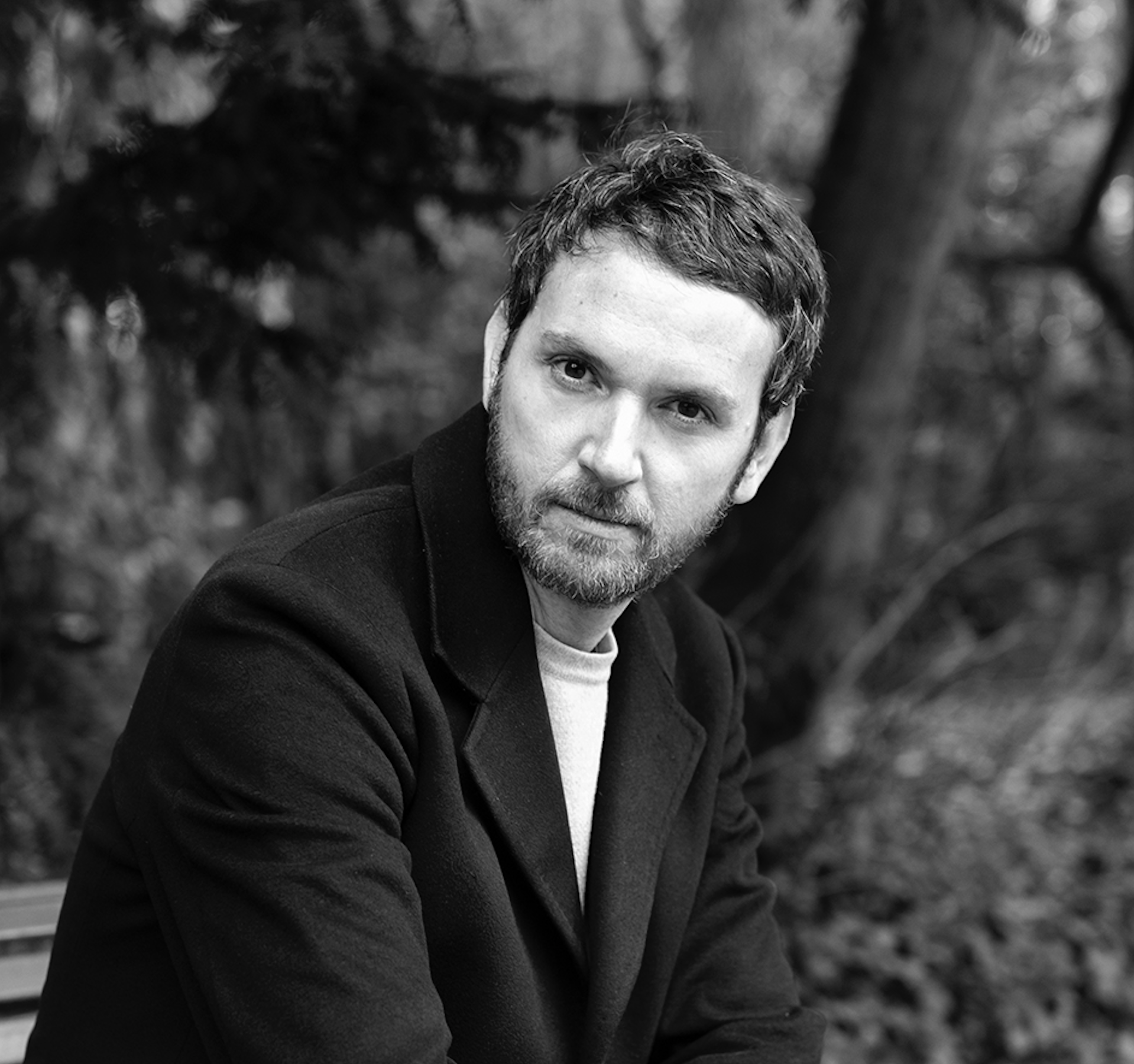
Miguel Morate Benito
*19 May 1978
Born in Valladolid (Spain), he studies Art history, classical guitar and Musicology focusing his interests as a musicologist on the figure of Francisco Guerrero. Since 2005, he works as a critic for different media and in 2007 he is appointed director of the Audioclásica magazine. Also, during 2009 he works as presenter and director of various radio programs on Spanish National Radio. From 2013 he leads his interests towards composition training under Alberto Posadas, Beat Furrer, Pierluigi Billone, Rebecca Saunder or Chaya Czernowin, among others. As a composer, his music has been performed by musicians such as Christophe Desjardins, Lorelei Dowling, Christian Dierstein, William Blank and Franck Ollu. In 2016 he gets a grant from the Madrid government and a year later he wins the 1st prize in the International Composition Competition of the Festival of Sacred Music in Fribourg. Also, in 2021 he gets the 3rd prize in the Basel Composition Competition.
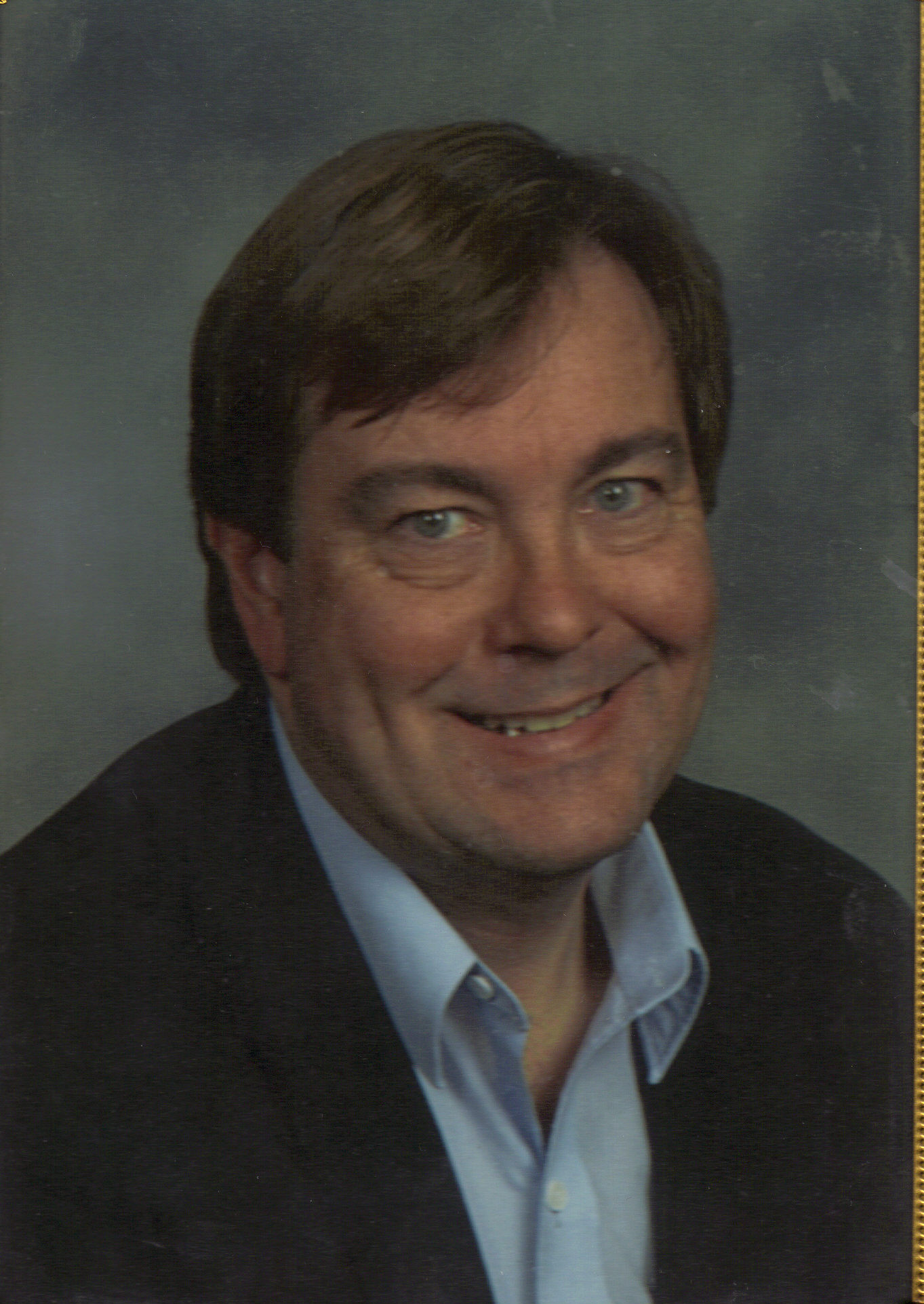
Neil Stipp
*18 October 1953
Neil Stipp is a free-lance performer, teacher, and composer. In 2003, he received his doctorate at UCLA (full scholarship), majoring in organ performance. He won first prize in the international 2010 AGO/ECS Publishing Award in Choral Composition for his anthem “May Your Life Be Filled with Gladness,” premiering in Washington D.C. Dr. Stipp has won numerous ASCAPlus awards for the prestige value of his catalog of composed compositions, and has been a finalist for The American Prize in composition. Recently in April of 2021, his “Symphony Capriccio” was premiered live in the Republic of Moldova in Eastern Europe, and he was a Platinum Winner in composition for the symphony by the Lit Talent Awards later in the year. His works have been performed throughout the United States, and also in Canada, Greece, Moldova, and Poland, and have been recorded on CDs and on YouTube. When he’s not busy with music, his hobbies include hiking, travelling, playing Sudoku, and dining with his sons.
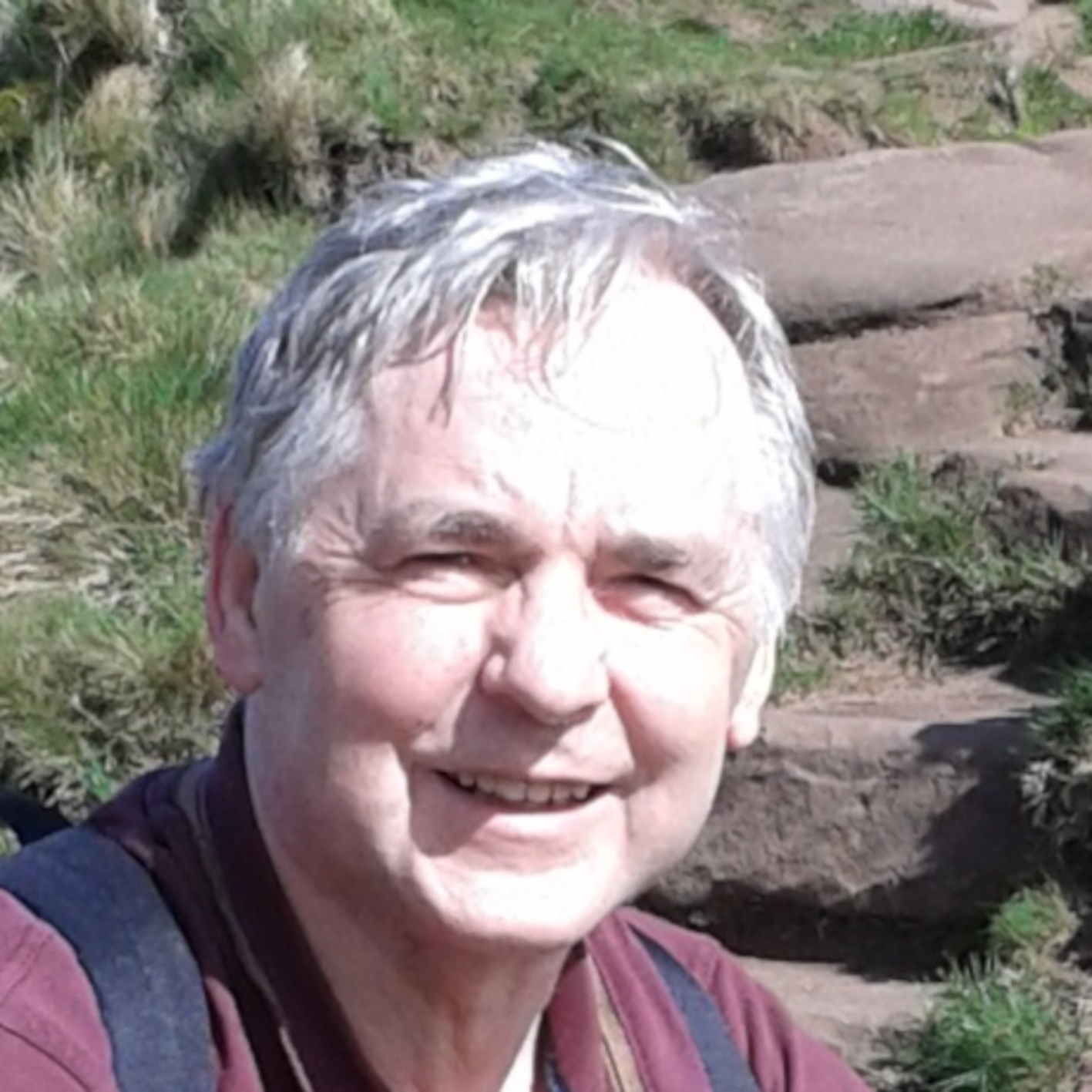
Peter S Walton
*2 July 1953
Peter Walton (1953-) is retired and lives in the UK. Peter initially studied for a BEd degree in music education. Later he studied composition with Robert Saxton at the Guildhall School of Music and with Jonathan Harvey at Sussex University, where he was awarded a MA in Music. 1981-83 member of West Square Electronic Music Ensemble. In the 1990s he was a Member of SPNM committee For some years Peter worked as an IT consultant and composed little. In 2014 Peter had a heart attack and major heart surgery. Whilst recovering, Peter returned to composition with a determination to complete pieces and to get them performed. Since 2016 his pieces have been performed in New Jersey, New York, Wisconsin, Toronto, Athens, Warsaw and Aberdeen, London, Oxford. Some works have been recorded to CD by the flautist, Iwona Glinka.
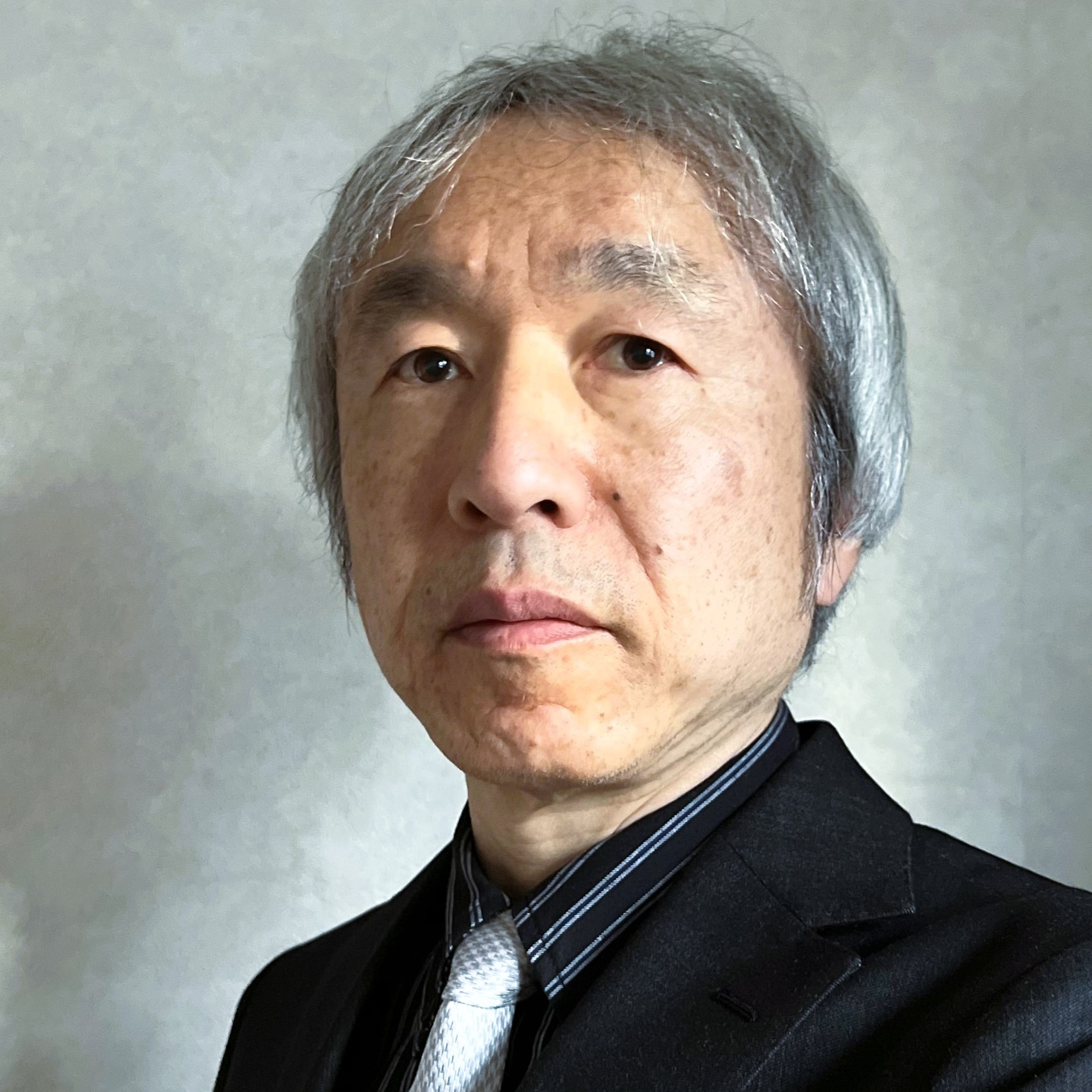
SATORU IKEDA
*12 March 1961
Satoru IKEDA, born in Hamamatsu City, Shizuoka prefecture in 1961, studied composition with Hiroshi OTSUKI and Shin SATO. Having received a B.A. in Education from Shizuoka University in 1983 and an M.M. degree in Composition from Tokyo University of the Arts in 1987, he is currently the musical director at Shimamura Music Co., Ltd. and a member of the Japan Society for Contemporary Music. He loves to play the piano and cello.
Satoru IKEDA has won 20 awards and distinctions, including: First Prize in The Music Competition of Japan (1988); an award from the Japan Symphony Promotion Foundation (2000); a prize for outstanding work in The Orchestral Song Composition Competition (2001); Third Prize and the Orchestra Award in the Luxembourg International Composition Prize (2004); First Prize in Sogakudo Japanese Lied Competition (2004); 1ª Mención de Honor in the First International Composers Competition for Piano Works, "Bell'Arte Europa" (2005); First Prize in the Kendo Music Composition Competition for the EXPO Kendo events (2005); an award from the "Handel-Inspired" Chamber Organ Composition Competition (2007); First Prize in the Flute Orchestra Composition Competition by the Japan Flutists Association (2008); Third Prize in the Shakuhachi Chamber Music International Prize (2008); short-listed in The British Harpsichord Society 10th Anniversary Composition Competition (2012); Third Prize in the Alfred Schnittke International Composers' Competition (2018); selection for the Sacrarium International Composers' Competition (2018); and 1° Prize Ex-Aequo in the Musica Prospettiva's International Call for Scores (2019-20).
Ikeda's works have been performed in the Exhibition of Contemporary Music "Works for Brass IV" by JSCM (2007), the Sydney International Composers Concert (2017), the ISCM World New Music Days in Beijing (2018), the 46th Pan Music Festival (ISCM South Korean Section, 2018), with works selected for the ISCM Virtual Collaborative Series (2020) and for the ISCM in Shanghai and Nanning (2021). Recently, two albums include his work won the awards one for string orchestra, Best Classical Album of the Akademia Music Awards (2021), the other for flute and cello, Clouzine International Music Awards – Best Contemporary Classical Album by Various Artists (2025).
REVIEWS
—After some flute soliloquizing, the cello enters as if opening a Bach solo cello suite before veering into our time zone. The confluence of the two instruments is marked by a refreshing consonance. The piece is timeless and lovely. (Neo-Summit Yugawara, for alto flute and cello: 2025) / Colin Clarke
—The ultra-expressive "Hataori", the most "modern" and powerful work on this recording. (HATAORI, for string orchestra: 2020) / Piotr Grella-Mozejko
—Multiplying the two instruments with sound movements derived from the motion of physical objects, the development of the clear contrast attracts the listeners. (Brown Brownian Motion, for guitar and marimba: 2013) / Jun'ichi Ishizuka
—A highly-atmospheric work made from a series of single tones covering the entire range of the harpsichord, with many colours arising from the development of chords and passages. (Prism, for harpsichord: 2013) / Pamela Nash
—There are some "echoes of heart" and "distant silences" as if one had entered into infinite space. Some sparks are projected into a limpid vision of the universe. Each reverberation of the saxophone and the piano consort refreshingly. And the ending is very impressive. (Psaume, pour saxophone alto et piano: 2011) / Hiroshi Otsuki
—This new contemporary piece incorporates virtuosity through an incredible arrangement of the "Nocturne Op. 9 No. 2" of Chopin. (Nocturne of Chopin for piano 6 hands: 2011) / EuroMusic Publishing
—Dante's "Divine Comedy" as the text, layering tonality and contemporary music. (Te lucis ante, for children's choir and piano: 2008) / Koichi Nishi
—Religious and serious. It is said that the composition was made with a requiem in mind, but it is not an easy transplant into an existing Requiem style. There is consistency in both harmony and tone system. The Renaissance-style counterpoint and harmony that appear in the middle section create an attractive contrast, which is marvelous. However, it is difficult to understand how the Japanese text (excerpts from Dante's "Divine Comedy" Purgatory, translated into Japanese by the composer himself) permeates and is reflected in the music. (do.) / Hiromi Saito
—An audacious movement of "expansion" of the respective traditions of the two instruments pushed as they are at times to the limits of the possible, increasing the expressive range, the texture of the dialogue, the harmonic dimension and the tone-colour. The listener can either follow this music in all its minute and complex particulars, or let himself be freely transported by his own vision and dream in no specific direction. (Ki-e, for shakuhachi, guitar, violin, viola and cello: 2008) / Andrew MacGregor
—Several motifs from the "Water Music" appear in this work, which seems to illustrate many water "features", not just bubbling, but flowing, cascading, freezing, evaporating, drenching… (Water Bubbling, for chamber organ: 2006) / Paul Ayres
—Eighteenth-century keyboard arrangements of the Air and Bourrée from the Water Music, are followed by a splendidly inventive piece by Satoru Ikeda in his 'Water Bubbling'. This is, as Paul Ayres notes, full of watery 'effects'. It well deserves to find a place in recital programmes. (do.) / Glyn Pursglove
—One beautiful use of the chamber organ comes from Satoru Ikeda, whose quasi-minimalist Water Bubbling makes clever use of … (do.) / Oxford Academic
—An exploration of light in a wind orchestra. There are gradations of light, various relationships, and darkness before the light arrives. (Planetarium, for wind orchestra: 2006) / Ito Ohya
—The score is like a miniature painting, with ornamentation and other sounds written in extremely precise detail. The fine sound cells scattered throughout the stage frequently interplay with each other, and it can be imagined that the performance is extremely difficult. Sound particles and colors flicker, shimmer and draw shadows. (do.) / Manabu Matsumoto
—He dreamed his Fireworks, rather as Stravinsky had his Octet. (Fireworks, for chamber orchestra: 2003) / Peter Grahame Woolf
—The composition, which sets off in a direct direction, burning energy without flinching, not letting the heat source cool down, and retaining the brushstrokes, brings a vigorous atmosphere. Beginning in an ecological environment, the high notes of the wind instruments intermingle, the gravity of the bass counters them. The scherzo in the development section has a lot of notes, but it does not lose its lightness. The roar of the brass gradually thickens. Despite the single movement with a classical title, the emotion of prayer was permeated as the theme in almost all four sections. (Orchestral Offering: 1999) / Akira Ueno
—The atonal piece, full of tension, regains classical tonality at the end. (Piano Concerto: 1988) / Tokihiko Umezu
—Intensifying dynamic energy with vigorous écriture, also enriched layered sounds. (Variations pour 5 instrumentistes: 1985) / Akira Ueno
—Absorbing the style of Shin Sato's works, rather romantic. (do.) / Yasushi Togashi
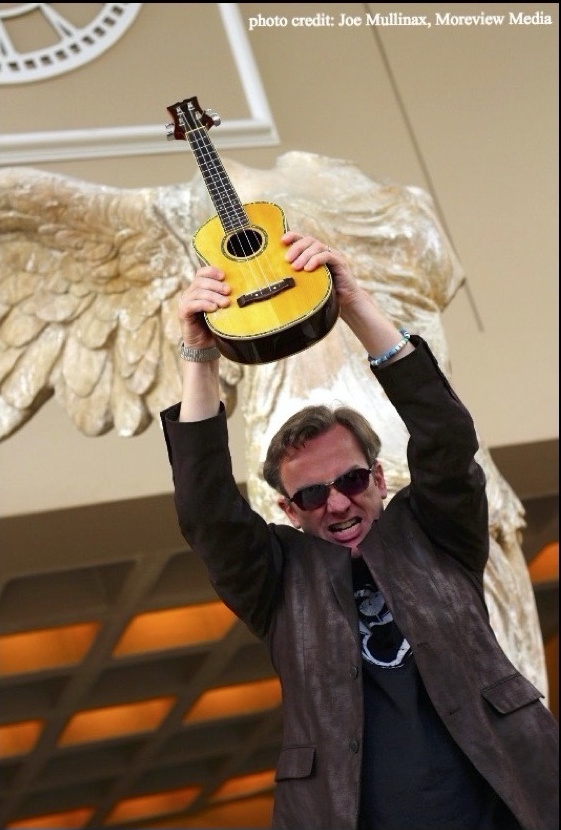
Scott Robbins
*14 November 1964
Scott Robbins's works have been recorded by the Grammy Award-winning Warsaw Philharmonic, premiered in Carnegie Hall, and received over 50 awards, including the International Prokofiev Competition, Yale’s Norfolk Composition Prize, CINE-Eagle Award, Loudoun Orchestra’s Composers’ Competition, ClefWorks Composition Award, and multiple awards from ASCAP and the AMC. He holds degrees from Wake Forest, Duke, and Florida State universities, and is Professor of Musicology and Composition at Converse University. Trained as a drummer and guitarist, Scott writes music that crosses the boundaries of popular and art music and connects with audiences and performers. Visit his webpage at scottrobbins-composer.com
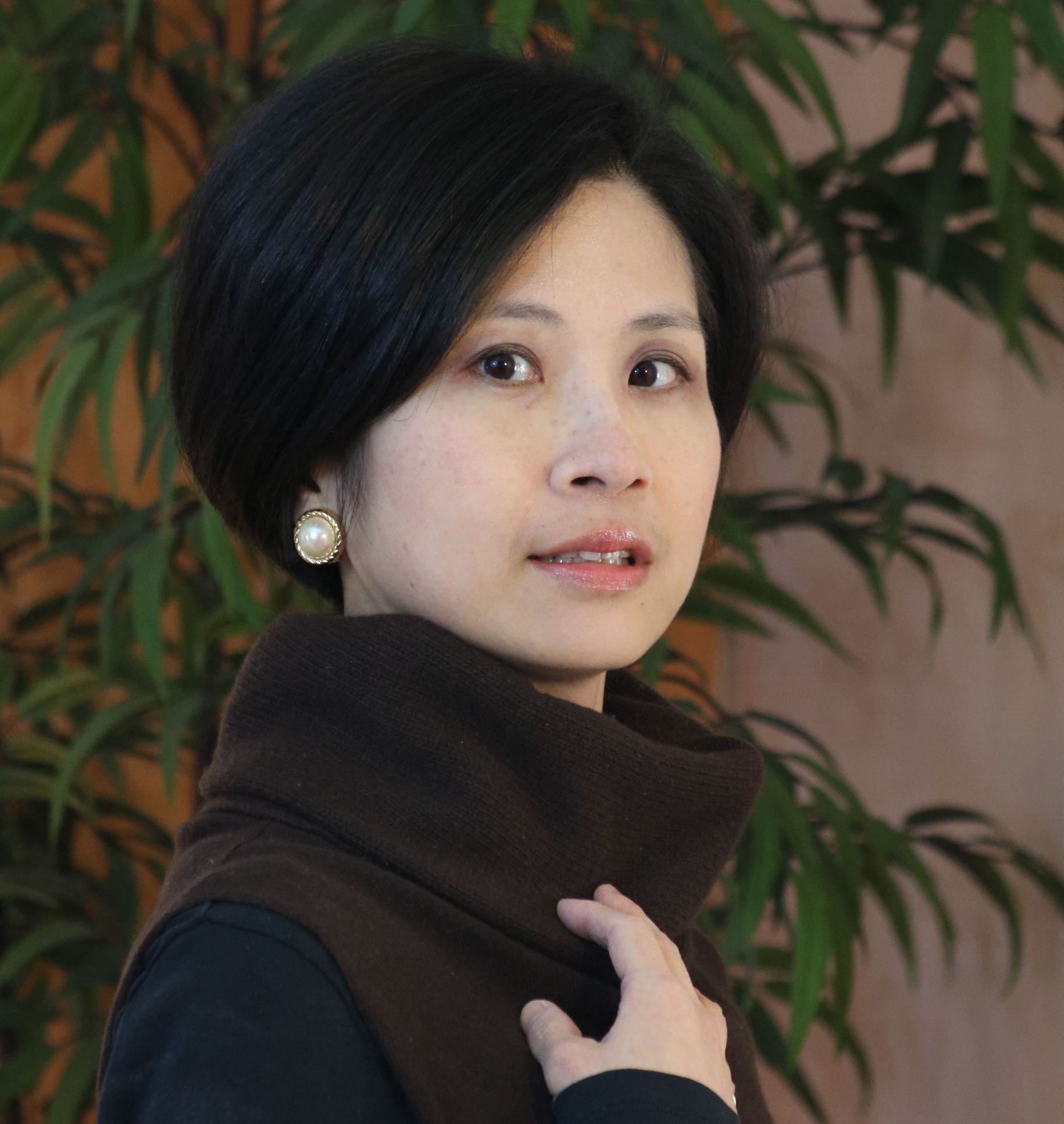
Ssu-Yu Huang
*9 December 1970
Ssu-Yu Huang, a native of Taiwan, enjoys an active career in contemporary music. Her compositions cover a wide range of music with bold and delicate genre. Her music has been performed by professional musicians and orchestras around the world to critical acclaim. German conductor maestro Günther Herbig praised her orchestral work of "a modern and complex style, presenting her own characters and creativity." She has received awards including the winner of the first Call For Score of the National Symphony Orchestra of Taiwan in 2010, the winner of Akademia Music Award in 2023, Clouzine International Music Awards, InterContintinental Music Awards in 2024, the most distinguished award of the 2013 IBLA Grand Prize, the 2021 Global Music Award, the finalist of the Women Powered Music in the 2019 Artemis Film Festival, 2015 and 2016 American Prize (semi-finalist), the 2016 Ernst Bacon Award (semi-finalist), the 2016 Maurice Ravel International Composition Competition (semi-finalist). In 2018, her orchestra piece "Heritage of Hakka" was selected and premiered at the grand opening ceremony of the National Kaohsiung Center for the Arts, Weiwuying. Her compositions have been published globally through companies such as Mahin Media (USA), Mark Custom Recording, PARMA Recordings, Ablaze, and Phasma-Music. Her music scores have been published by Golden Hearts Publications and Universal Edition. In recent years, Huang's works have been increasingly performed throughout the European, Asian, and American continents. She is currently the resident composer of Hotshot Cello Choir.
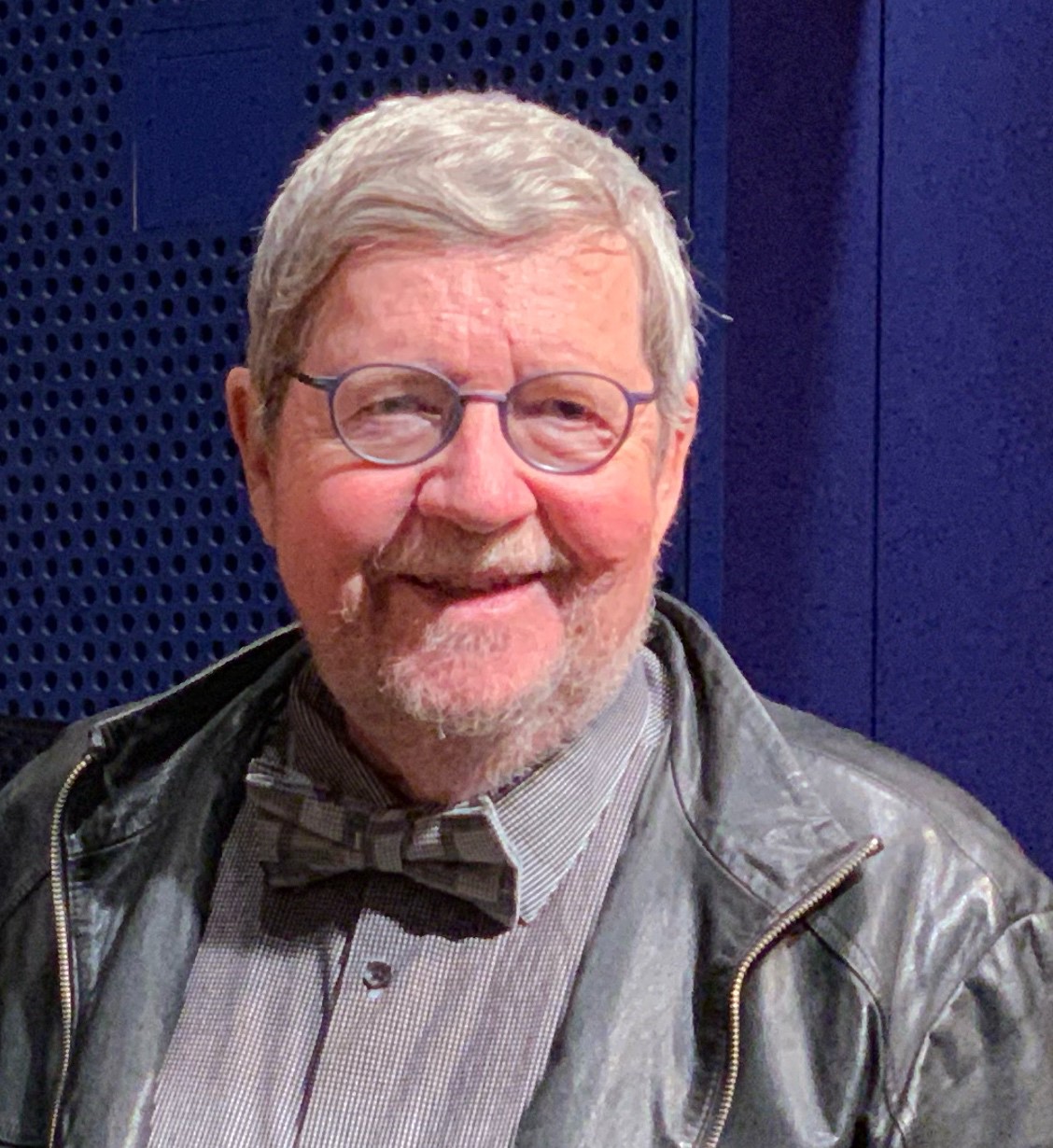
William Toutant
*2 May 1948
William Toutant was born in Worcester, Massachusetts. He received his BA and MA from The George Washington University and his Ph.D. in music theory and composition from Michigan State University. He studied with Robert Parris, H.Owen Reed, and Jere Hutcheson. He joined the music faculty of California State University, Northridge in 1975. During the next 38 years he not only taught in the Department of Music, but he also served in a variety of administrative positions including Dean of the Mike Curb College of Arts, Media, and Communication. For eighteen years wrote and hosted the weekly radio program, “The KCSN Opera House.” He became Professor Emeritus in May 2013. His music is available on North/South, Capstone, Centaur, Phasma, Ariel and Navona records. He lives in Los Angeles with his wife, Ligia Toutant.
